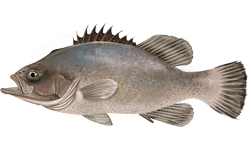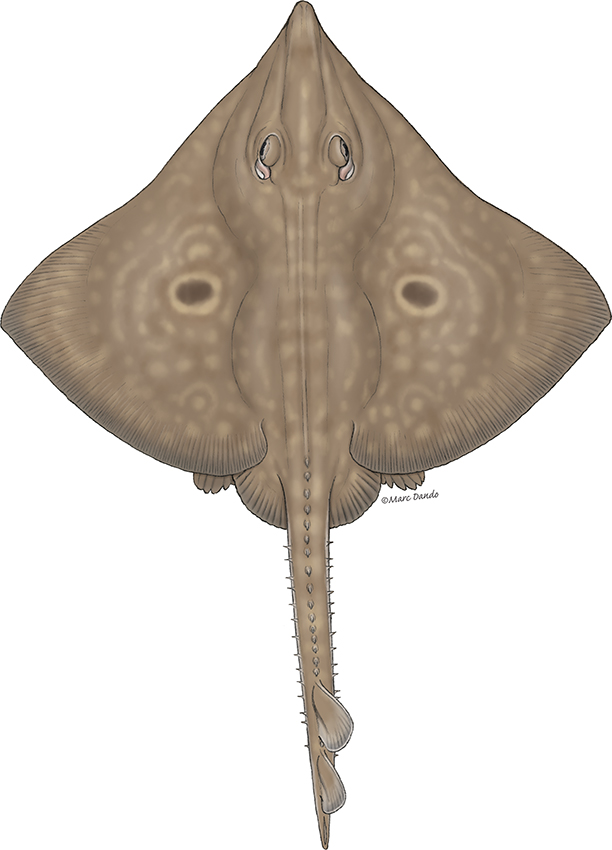Many of the questions that the public ask Cornwall Good Seafood Guide relate to the sticky topic of seafood labelling.
One of the nice things about seafood are all the interesting local names for different species, it adds colour and local interest when talking about seafood but it can also prove a problem, especially for those wanting to ensure that the seafood they eat is as sustainable as possible. Scientific names are designed to stop this happening but they are not user-friendly for the public and are rarely used, so we are often faced with a problem when it comes to working out what is actually being offered. It is really important though as none of us wants to eat a rare species!
Take
skate wings for example. If you do a web search for skate you will quickly discover that UK waters are home to many species of skates and rays including four large and endangered species which are occasionally accidentally caught in nets and trawl. All ray species are relatively slow growing and slow to reproduce. One of the protected skate species found in our waters, the
common skate is now commercially extinct in the Irish sea and classed as critically endangered by the ICUN Red list, making it illegal to land this species.
When offered skate wings by a fishmonger or in a restaurant it is unlikely to be one of these large species of skate but instead one of the many species of smaller ray (confusingly these are also in the skate family) such as
thornback ray,
cuckoo ray or
spotted ray, that are caught in shallower coastal seas and are far less endangered. The problem with the name skate wings is you have no idea which species you are eating.. It could be a protected species. The method of capture of this species is rarely provided but this should also be important to consumers as each of the many different fishing methods in use have specific environmental impacts. In order to move towards more sustainable fisheries for these vulnerable species we need to see better labelling using recognised common names and method of capture. Find out more on the Shark trust website
here.
Another problem comes when looking at farmed seafood. Meagre (Argyrosomus regius) is a very large member of the bass family which is being farmed in Southern Europe. Meagre is sometimes marketed as “stone bass”, this is confusing for customers as stone bass is also a commonly used name for a large and relatively rare species, occasionally caught by Cornish fishermen, the wreckfish (Polyprion americanus). This heavy-set fish can grow to 2m in length and is a slow growing species with a high vulnerability to fishing. It is occasionally caught on longlines by offshore netters. Little is known about its biology or stock levels but it is classed as near threatened by
ICUN and it is a species that CGSG would currently not recommend people to eat. This just highlights the problem of using inaccurate common names and the confusion that can be caused.

Stone bass or wreckfish.
From the point of view of Cornwall Good Seafood Guide we would urge the public to avoid eating farmed fish where there is a local, sustainable, wild-caught alternative. A recent
report published in Nature shows that fin fish farming is far more wasteful in terms of carbon footprint compared to non trawling wild capture. This is due to the fact that the fish raised are fed on fish pellets produced using industrial fishing and wasteful energy consuming processing. On top of this farmed fish are transported long distances, often frozen and are an inferior product to many of our locally wild caught alternatives. Our message is still the same – please ask for Cornish Sustainable seafood recommended by Cornwall Good Seafood Guide.
Visit our
home page to find out what is in season and on our Recommended list!
If something you are offered is not on the list it may not be Cornish so please proceed with caution!
You can find out information on species that are caught or farmed outside Cornwall by visiting the marine conservation societies
Good Fish Guide.
If you have any questions about seafood labelling please get in touch.
Matt Slater


 Stone bass or wreckfish.
Stone bass or wreckfish.
